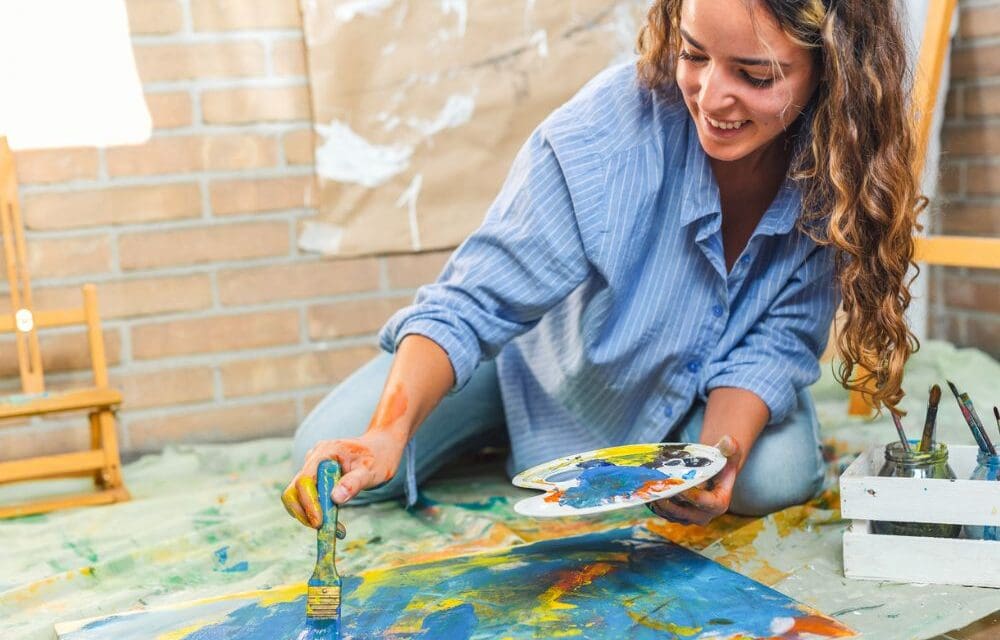Think about your to-do list. Or maybe it would be more accurate to think about your various to-do lists.
You might have a to-do list at home and a to-do list at work (and maybe even another to-do list for a second job). You might have a to-do list for getting your kids from here to there and back again while also making sure they have what they need to thrive. You might have a to-do list for a board or committee or volunteer project you are part of. You might even have a to-do list that just reminds you to keep up with your other to-do lists!
But if you are like many, many other busy people, there is one to-do list you do not have: A list related to your hobby. In fact, a hobby might seem like a luxury rather than anything that warrants a to-do list.
We would argue, however, that having a hobby—activity you do solely because you enjoy it—is a good idea for everyone. And it is an especially good idea for a person in recovery from a substance use disorder. An engaging hobby provides an opportunity to rest, recharge, and set the stress of your daily life aside for a little while. When you truly enjoy something, it captures your whole attention and can bring a sense of pleasure and accomplishment. All of those things support your ongoing recovery efforts.
The trick, of course, is figuring out how to work a hobby into your already jampacked schedule. So, let us put together a little to-do list to get you started.
First Things First: Figure Out What You Like to Do
It is possible that you know exactly what you would do if you had more time. It is also possible that you do not have a good sense of what sort of hobby you would enjoy.
If you fall into the latter category, you might think back to activities you enjoyed in the past. Maybe you were in the high school band, for example, and would enjoy playing your instrument again. Maybe you had a deep interest in a topic that you never really had a chance to sink your teeth into, but could investigate to your heart’s content. Maybe you used to write or sketch or take photographs—and could start doing so again.
If nothing comes immediately to mind, you might need to engage in some trial and error as you search for a hobby. Try something that sounds interesting. If it turns out to be fun, stick with it. If it doesn’t, that’s okay, too, because there are plenty of other options.
Next Step: Figure Out What You Need to Get Started—and to Keep Going
Want to start collecting stamps or baseball cards or action figures? You might need a reliable list and some guidance about how things are priced. Want to take up a sport like golf or pickleball or swimming? You might need some equipment. What to build model trains or raise plants or take up cooking? You might need to set aside some space.
Figuring out what you need to dig into your hobby should not be too hard—and it does not have to be expensive, either. You can always start small, after all. The key is to actually start.
Last Step: Build Regular Time into Your Calendar
All of your most important activities are already in your calendar, right? If spending time on a hobby is important—and it is—then that time should be in your calendar, too.
Maybe you can set aside an hour a day. Perhaps you can grab a few hours each weekend.
Maybe you could take a day or two off every couple of months in service of your hobby. The amount of time is actually less important than that you set—and stick to—a regular time so that your hobby becomes a positive habit that improves your quality of life while supporting your ongoing recovery.
Getting Help for a Substance Use Disorder Should Be at the Top of Your To-Do List
If you are struggling with drugs or alcohol, there is a good chance you are not keeping up with your various to-do lists. Or to put it another way, your to-do list might be reduced to making sure you have ongoing access to the substance that is currently at the center of your life. In order to make a change, you need a new to-do list with just a single item on it: Get yourself into treatment for your substance use disorder.
At The Aviary Recovery Center, located near St. Louis, Missouri, we provide personalized care for those who want to reclaim their lives from drugs or alcohol. We offer medically supervised detoxification, a rehabilitation program that can also address co-occurring mental health disorders, and a continuum of care that ensures you have ongoing access to resources and support as your recovery journey gets underway.
Ready to make a lasting change for the better? We are ready to help.









